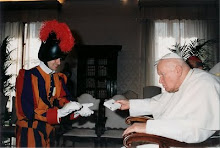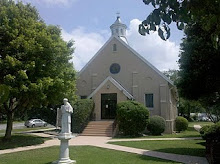"Will the new Pope, Pope Francis, change the Church’s position on things such as abortion? Will he change Church teaching on sexual morality?" These and similar questions I received in the days and weeks following the election of the first Pope from the New World.
Most Catholics know what the answers are. But some, and many others who ask these questions, do not.
The questions and misunderstanding about the teaching authority of the Pope oftentimes grow out of the idea that what we are talking about is public policy, much like the government having policy on immigration, gun control, health care. Catholic teaching on matters of faith and morals is very different. It is not man-made policy or a position that results from majority rule; it is not the Pope’s opinion or personal policy preferences. It is revealed truth that is not open to change by human beings.
Yes, there are some Church laws that can be changed. The prohibition against eating meat on Fridays was a man-made Church law. It could be and was changed. In some parts of the world there are holy days of obligation, different from those that we follow in the United States. These are man-made Church laws that can be, and sometimes are, changed.
What cannot be changed is that core of the Judeo-Christian tradition rooted in God’s revelation and expressed in commandments such as You shall not kill, You shall not commit adultery, You shall not bear false witness, You shall not steal.
The Church simply cannot declare that abortion is acceptable or a good thing, no matter how popular that cultural belief might be, even among some Catholics. It cannot simply announce that there are no moral parameters to human sexual activity. Neither the Pope, nor bishops, nor a majority of faithful can declare that the unjust taking of what belongs to others – stealing – is morally acceptable or a good thing.
To understand Catholic teaching, we have to go back to the very beginning – to God’s revelation of who God is and, therefore, who we are and how we are to live.
Among the gifts that we have received in our created human nature is the natural light of human reason. The beauty of creation and the wonder of the world speak to us of a creative power far beyond us, of a God who creates with great order and majesty. Built into creation is an order that we simply do not have the power to dismiss. Fret as we might, the law of gravity binds us to the earth.
We also are aware of the voice of conscience. There is a moral law every bit as binding as physical laws. This insistent call to goodness which we hear in our heart is the voice of conscience. It is a manifestation of the presence of God within us.
The knowledge of God that grows out of faith is far more complete and reliable than any other knowledge we have. It is based not merely on the strength of human insight and interpretation, but on God himself. As Jesus taught us, “Anyone who hears these words and acts on them will be like a wise man who built his house on rock. The rain fell, the floods came, and the winds blew and beat on that house, but it did not fall, because it had been founded on rock” (Matthew 7:24-25).
The task of authentically interpreting the word of God has been entrusted exclusively to the Church’s living teaching office, the bishops in communion with the Pope, the Successor of Peter. The Church’s authority in this matter is exercised in Jesus’ name (Catechism of the Catholic Church 85 and Dei Verbum 10). Thus, we begin to see why it is that Pope Francis, or any Pope for that matter, cannot simply change Church teaching. It is not his to alter. His task is to pass it on. “Tradition” means “handing on” and the Church is responsible for passing on faithfully all that it has received from the Lord. Bishops and those who assist them in teaching the word of God are to pass on the saving message of Christ in its entirety.
So, will the Pope change the teaching of the Catholic Church in matters of faith and morality? The short answer is no, he will not because he cannot.
Ultimately, this answer makes sense only to those who are prepared to accept that God has broken the silence of the human condition and spoken to us. For those of us who do believe that the Word of God has come into our world, the faithfulness of the Pope and bishops to Divine Revelation is a cause of profound reassurance. We come to know that God loves us so fully and completely that he offers us real freedom and eternal life, if we will only accept God’s word, believe it and live it.
With every good wish I am,
Faithfully in Christ,
Donald Cardinal Wuerl
Archbishop of Washington












No comments:
Post a Comment